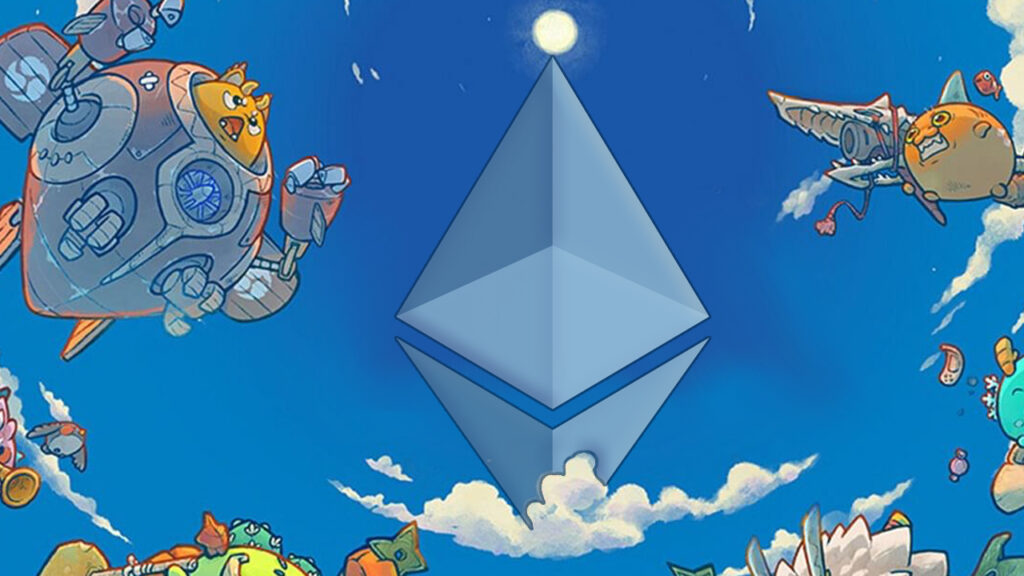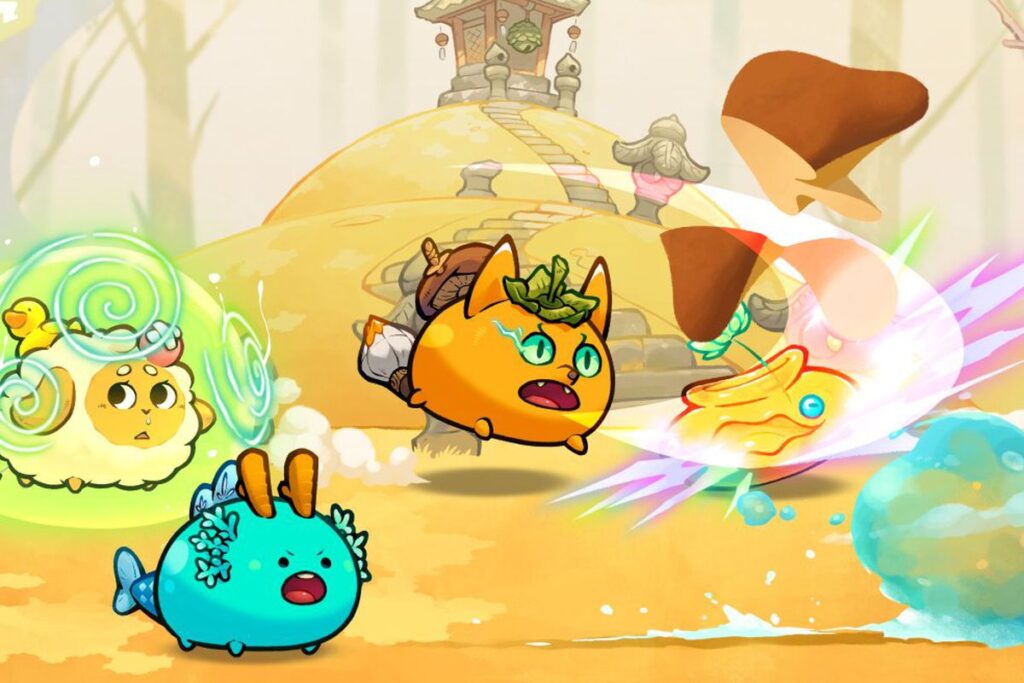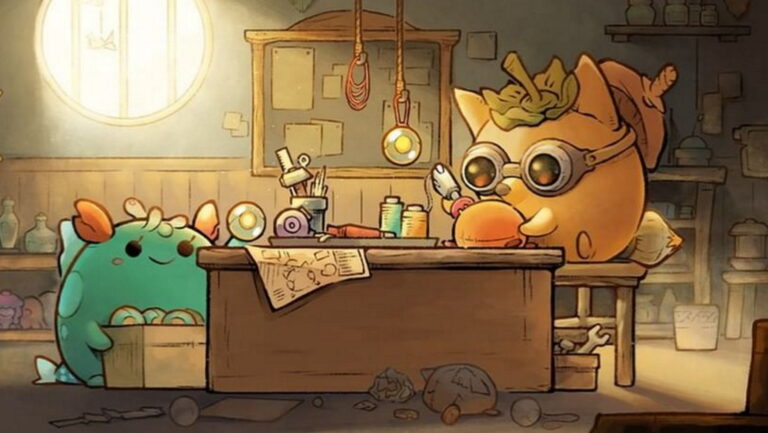With over 400 million users, India has the largest mobile gaming population in the world. Other well-known platforms consist of desktop computers as well as game consoles like Xboxes and PlayStations. Until recently, all of the NFT – based games such as Grand Theft Auto and Call of Duty have used a centralized strategy in which the game creator controls the game through administrators and keeps all of the game data on one server.
Decentralized gaming is now gaining worldwide interest because of The emergence of blockchain technology, led by blockchain based new nft games such as Axie Infinity (AXS), the Sandbox (SAND) and Decentraland (MANA).
In a blockchain-based game, the players have total control of their digital identities, assets and accounts. In addition, individuals have complete control of how they interact with the natural micro economies of the game, trading and cashing as they like.
This contrasts with a central game where all player items, collectibles and cash are kept in a database of the game maker and are thus owned and controlled by an individual company.
Furthermore, central game servers are susceptible to failure, infiltration, manipulation and shutdown by developers / admins and don’t provide gamers with visibility into game mechanics.
Just how blockchain – based NFT games are different Players possess real ownership of in game assets in a blockchain game. These assets are generally represented by non-fungible tokens (NFTs) that serve as proof of ownership for participants.
The in-game equipment, wearables, character skins and cards would be just a handful of examples of assets that can be linked to NFTs and kept on the distributed system of a blockchain game.
Micro-economies or decentralized markets can arise within the game because players are able to easily own and exchange their in-game assets.

Additionally, the protocol eliminates the need for trust between player traders and / or third party or a mediator to manage markets since blockchains are decentralized. Blockchains also permit money transfer and payment facilitation between users by way of cryptocurrencies, which holds true for micro economies in blockchain based NFT games.
The blockchain technology may also permit players to move and make use of assets across different NFT games or even trade them through NFTs (for digital assets) and crypto (for value transfer) on various other gaming marketplaces.
Players can vote for or against any changes or changes based on the way the game is implemented.
Furthermore, the distributed nature of the blockchain prevents hackers from interfering with the game because distributed networks don’t have a point of failure. A blockchain-based game also continues to operate even when its creators move away or relocate.
These characteristics favor blockchain-based NFT games over their centralised counterparts, but the distributed ledger technology has its drawbacks.
Blockchains tend to be slower than centralised networks when it comes to network performance and scaleability, which has an impact on in-game transactions. Additionally, NFT games created on blockchain are still in the early stages and don’t have a lot of money or fanfare, as it is still a relatively new technology.
Axie Infinity, a well – liked blockchain – based game (AXS) Axie Infinity was developed by Sky Mavis to instruct the gaming community in an entertaining way about cryptocurrency. It’s a play – to – win game where players collect, battle, and also make use of Axies to win tokens and also shell out at specified times.
The game uses Ethereum coins AXS (Axie Infinity Shards) and SLP (Smooth Love Potion). NFTs and crypto on its platform allow users to obtain property rights.
Axie Infinity also offers an active social and scholarship program that aims to inspire and teach new players. Sky Mavis obtained USD 152 million in October 2021 by Andreessen Horowitz, Mark Cuban, among others to broaden Axie Infinity.
Sandbox (Sandbox)
The sandbox is a virtual world game where players are provided the tools needed to produce their very own nonlinear experience. Sand is used to power the in-game economy of the Sandbox, developed by Pixowl and acquired by Animoca Brands.
Players can create digital avatars and make use of tools to create in – game assets, convert them to trade and NFTs / sell them. The Sandbox is therefore a title for NFT games. Furthermore, the Sandbox allows for the sale of virtual property within the game, allowing landowners to produce digital experiences on the platform.
The project acquired USD 93 million in a Series B funding round led by SoftBank’s Vision 2 Fund along with a number of extra investors in November 2021.

Decentraland (MANA) Decentraland is a virtual world where individuals are able to own land, hold virtual gatherings, produce and share content and take part in a number of social activities.
Decentraland, like Axie Infinity, The Sandbox along with other blockchain based NFT games, allows players to manage their digital identities and in -game assets through blockchain technology.
Decentraland is a pioneer in the field of blockchain based NFT games; its economic system is fuelled by MANA, an Ethereum standard token. As a result of Land, its virtual property NFT, the game continues to grow in popularity.
Decentraland raised USD 26million in an initial coin offering (ICO) in 2017 and reportedly got more money in unknown amounts from Digital Currency Group, CoinFund, FBG Capital, Kenetic Capital, and Hashed.
The Metaverse and Gaming other notable initiatives in the sector consist of Axie Infinity, the Sandbox and Decentraland, the virtual reality game Bloktopia, the NFT – platform Enjin, the role-playing game Ilivium and the Gaming platform Gala.
The market cap of the leading gaming crypto tokens is USD 21billion, which happens to be really a pittance when compared with the top crypto currencies like Bitcoin (almost USD 1 trillion) and Ethereum (USD 536 billion).
The play-to-earn model of blockchain based NFT games might play a major role in encouraging the adoption of Metaverse platforms with the increasing popularity of the concept of shared, gamified, three-dimensional virtual environment where individuals can interact.
Decentralised, blockchain based platforms in addition to centralised tech – giants like Microsoft, Meta (previously Facebook) and others which are developing in the area are positive on the idea. Additionally, centralized NFT games such as Roblox and Fortnite have been creating the most metaverse-like experiences.
In conclusion
NFTs provide the opportunity for esports players to earn. It is amazing because, although you are experiencing the joy of the game, you are concurrently hoping for profit if you lose interest in the game items and wish to swap them for much more appealing ones.

